Before his role as Lead Designer on Wing Commander: Privateer, Joel Manners also worked on a number of Origin's other early hits, including Knights of Legend, Ultima VI, Savage Empire, and the original Wing Commander games too. Here I talk to Joel about his early days testing games at Origin, how he got his foot in the door, and thoughts on how game design has evolved since then.
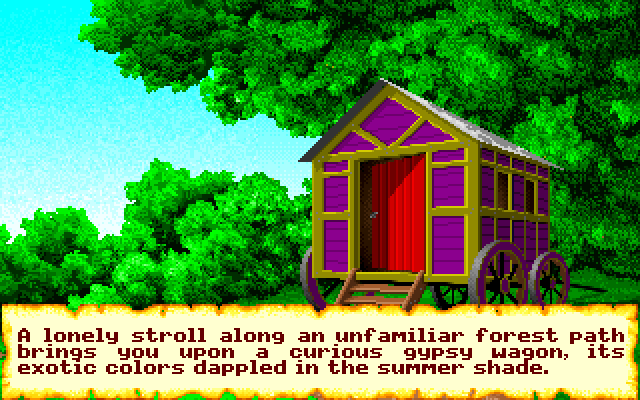
Ultima VI: The False Prophet
I wanted to ask you back to the start of your time on Origin… you said your parents knew Chris Roberts’ parents? Was there any kind of job interview – how did you land the QA job?
Joel: Yes, this was through university – my dad taught at the University of Texas here in Austin. So there was an interview, definitely, but I think because there was that introduction there was a little sense of, ‘take this guy a little bit more seriously’, I don’t know. I mean, I was super nervous of course because I wanted the job really desperately, and I was convinced it was the hardest interview of my life. But looking back at it with a bit more perspective, I suspect that was actually not the case!
So yeah, Origin had its own QA department. There were 5 or 6 of us and the way that it worked back then was this was the summer that Origin was publishing a bunch of games for basically freelancers who had come to them with a game idea and then Origin would provide the artists and marketing and QA and whatever the guy needed to get the game done.
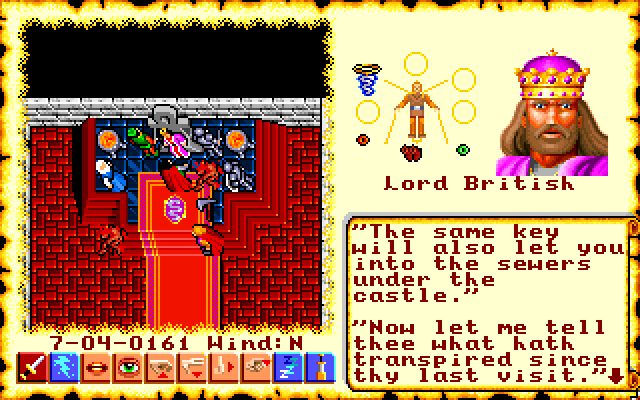
Ultima VI: The False Prophet
There were several of these guys… Chris Roberts obviously, Todd Porter, Paul Neurath… these guys weren’t Origin employees but they had signed a deal to get their games done. So, we were working on all that stuff while Richard [Garriott] was working on Ultima and while Chris was starting to work on Wing Commander. There were a whole bunch of games in QA and we were working on all sorts of levels of completion. We had Space Rogue, Times of Lore, Knights of Legend, we had a programmable tank game names Omega, we had a children’s RPG called Tangled Tales, a game called Windwalker – a ton of stuff. I think that’s actually the same summer that we were working on the Ultima VI spin-offs Savage Empire and Martian Dreams.
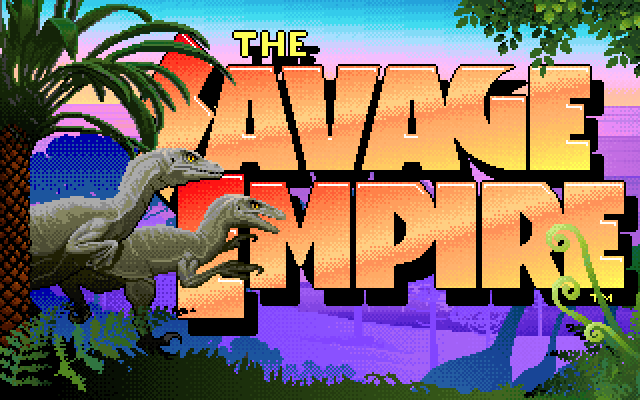
Worlds of Ultima: The Savage Empire
Wow, what a brilliant time for Origin. All those games you mentioned are just… well, so much of my game-playing youth right there.
Joel: I know – it’s crazy, right? And the was, this was at a time when no one knew which platform was the right platform to publish on, so we had PC and also obviously the Apple II and the Commodore 64 and the Amiga… everyone wanted to be on the Amiga because it had the best graphics… and so we had to cover all of those and test on every single one of them, so it kept us extremely busy, but it also gave us an opportunity to work directly with the freelancers. There wasn’t anything that we’d recognize as a design department, and so the guys in charge of the games would just dip into whoever had the interest and the creativity to be a part of them – whether they be an artist, or a sound engineer, or a customer service or QA guy – it didn’t matter. If you had the time and you had the inclination and you got along well with this guy, you could kind of be a designer for him.
That was never official, but you got into it as much as you had time for it. And so as time went by and the teams got bigger and the games got bigger, people started saying, “look, we really need something,” I think we started calling them Technical Design Assistants – TDAs. Folks started to move into those positions and I was lucky enough to do that on Martian Dreams and Wing Commander.
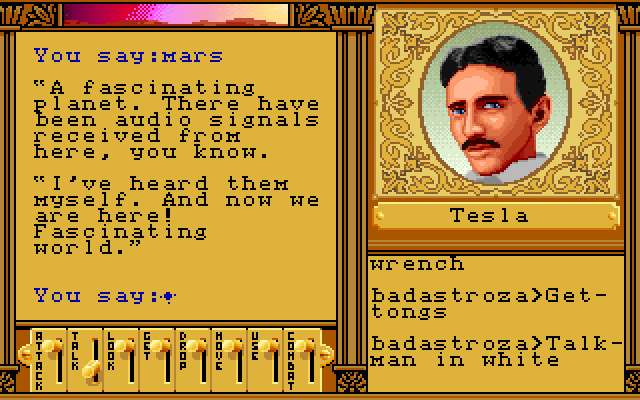
Worlds of Ultima: Martian Dreams
You mentioned Ultima – maybe we can touch on that because it was such a classic series?
Joel: Yeah – most of my time on Ultimas was on QA. Once I got on Wing Commander, I stayed on the Wing Commander side of the company, but I did get a chance to work a little bit on Martian Dreams not just as QA but also as a designer. Then also on Ultima VII, and that was a heck of an experience.
I was such a nerd for Ultima. It was the reason why I ever went to Origin in the first place, because of my time with Ultima III. I loved Ultima V and I loved Ultima VI, and then Ultima VII was this amazing thing where it was going to be a break-the-mould game just like Wing Commander was a break-the-mould game. It was going to be something very new and special where it had the level of detail that you’d expect from a linear RPG but it would actually be open world. It would have both the breadth and the depth. It would have both the cinematic storytelling as well as the day-to-day detail of moving around and leveling the character and finding out the story that Ultimas are kind of famous for.
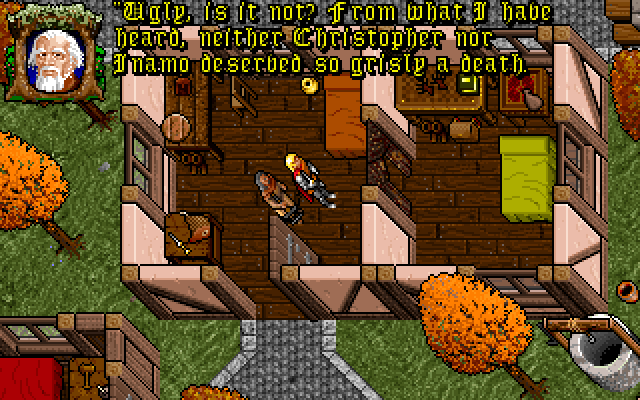
Ultima VII: The Black Gate
And oh my god was it an endeavor! The team was extremely large, like nothing any of us had ever seen before, and the amount of work that went into the game was astronomical. We would spend days or even weeks on a single village making sure that it felt alive no matter what stage of the story you were in.
Well one example that I remember really clearly was that the villagers would be making bread and just going about their daily lives – you guys had the tagline “We create worlds” and here you had done exactly that. You could just stop and watch the characters going about town, going into the tavern, going to the shops – and it was just amazing how you’d created this living, breathing world in the game.
Joel: Yeah – and if as a player you wanted that thing, that resource that the villagers made, you had to wait for them to get up and do it. And if you visited, say, the river in the woods near the village, if you went there at night then it had to feel different. Different things needed to happen and you would never know if that was going to be a significant thing or not when you set out. Maybe it is and maybe it isn’t – maybe it’s just that there’s some wolves and you think, “aw crap, wolves, I gotta attack them”. But maybe it’s more, holy crap, now there’s an NPC that’s never been there before, and that little thing unlocks a whole section of story or world that you never even knew existed until you happened to do that thing.
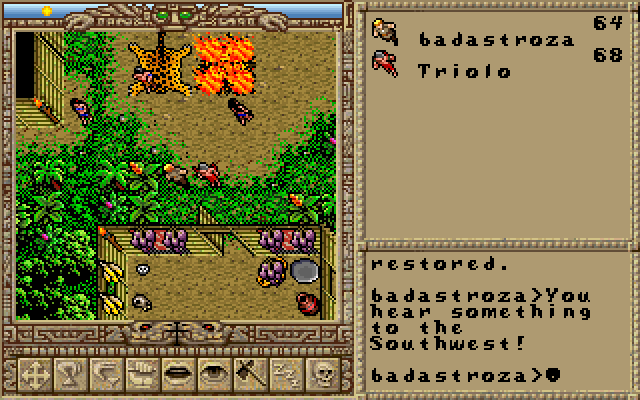
Worlds of Ultima: Savage Empire
It’s something that’s a lot more common nowadays – I’ve played through Fallout and games like that and you see it all the time. The funny thing is, and I got to thinking about this while I was playing Skyrim, is that it didn’t feel the same anymore. To me, the issue is now that I expect every rock to have something important behind it. Right? Like, if there’s an empty valley, I question its use, because I’ve gotten to the level of expectation in those games where I know that 100 designers have spent years putting little plot components in every nook and cranny of that world. It doesn’t have the same sense of wonder that I used to get.
Well, don’t you think some of that is a nostalgia thing? Or some of that is that what you guys were doing back then was new but the times have just moved on?
Joel: I think you’re totally correct and if we were to go back today and play the games for the first time, we’d probably be frustrated by some of the things that they do. I definitely think its nostalgia and that players have grown used to having a much more robust world. So I’m not sure all of it would fly anymore – but on the other hand, I think it might, just because of games like Dark Souls, which have proved that you can do everything we’re told you should never do in a game, and have it be done so well that players absolutely adore it.
I’m referring to the incredibly cryptic and difficult nature of understanding that game – everyone for years had said that you cannot make things so hard to find to hard out and so punishing for the player when they make mistakes. Yet, of course the truth is you can’t do that if your game is bad! But if you do it well, players go “holy crap that’s satisfying!” – so, definitely some nostalgia but there’s also a difference. Could you get away with it again? I think only if you were pretty much perfect in your execution.
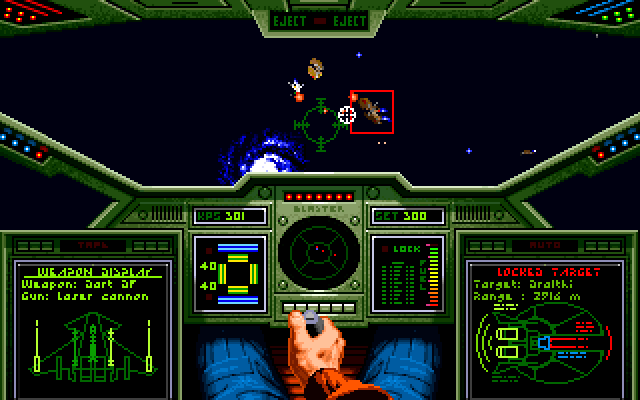
Wing Commander
It’s really interesting you bring that point up because I was talking to someone recently about the NES and Genesis days, where games were super tough, super unforgiving and you had to learn the enemy pattern… you had your three lives and if you died, that was it – you were done. And we still had a fantastic experience! So maybe games did get too easy, where there’s too much handholding, and that maybe there is room to make games harder without having to mollycoddle the players.
Joel: I think there is, and that’s a great example – that was it, right? I heard someone else say something, and it’s not my idea but it stuck in my head, that the reason why people are accepting of Dark Souls is because no matter how hard it is and no matter how many times you died, every death seems justifiable. Like, you know why you died. There’s never that sense of cheap death. Now, that’s not true because there’s tons of cheap deaths in that game, but they were because of you! You end up thinking, “ugh, god, I knew better than to do that!” and I think that’s really true. They made a game that’s so refined in its ruleset that the players instinctively understand why they died, and they know the rules and they know what they did and it doesn’t seem unfair to them. They just know it’s hard.
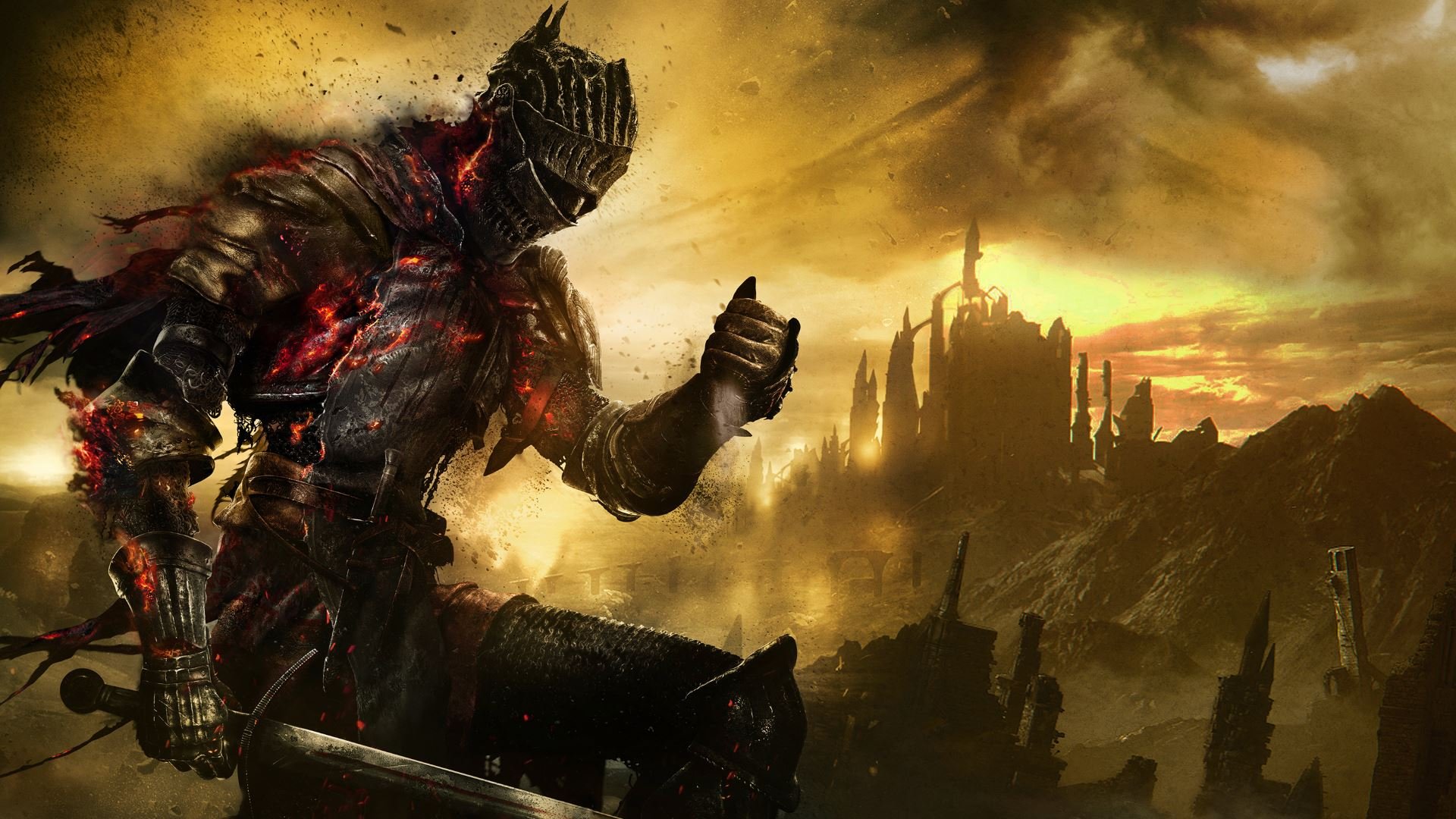
Dark Souls III
I don’t know how many people agree with that, but I heard someone say that and it stuck with me, and I think it’s true of old-time games. I can remember being stuck on Mike Tyson for like a month. And his patterns weren’t the hardest ever made in games, but I just couldn’t get it. But then I did – and it was wonderful.
I can’t really imagine being stuck on something for that long anymore. I think with so many games available these days and so many more coming out, you just think sometimes, “I can’t spend 5 hours getting past this boss because my backlog is building up!” whereas 20 years ago, man, I would spend a week trying to figure out… you know, what do I do with this spoon in King’s Quest! So you’ve mentioned Dark Souls – what are some other games that you’ve stood out to you?
Joel: (laughs) I think some of the games that have really stuck with me are the Mass Effect games. Their storytelling and character development is a wonderful thing for games. The fact that they actually took the time – and yes, some of the characters were silly and yes, some of them are badly written, whatever – it’s still compelling that they made a game that’s just about collecting characters. Yes, the combat is whatever it is, and the character building is whatever it is… but the fact you’re playing this game is because you love to play a movie with these characters and to listen to their stories and to participate in them. That’s incredibly compelling.
Another story-driven game that I felt was incredible is The Last of Us. Again, was its game mechanics particularly original or particularly refined? No, not in the slightest – and it didn’t matter. I would go through any number of rather dull zombie attacks just to get to the next piece of story. Honestly, it was one of the few times where I really cared what happened to those two characters. I don’t know whether I was just being emotionally fragile or whatever, but I wanted Joel to lie to her at the end! I wanted it, because I wanted her to be satisfied with the ending… I didn’t want her to feel bad! And it’s like, when was the last time I gave two flips about a character’s emotional state at the end of game. It’s so rare.
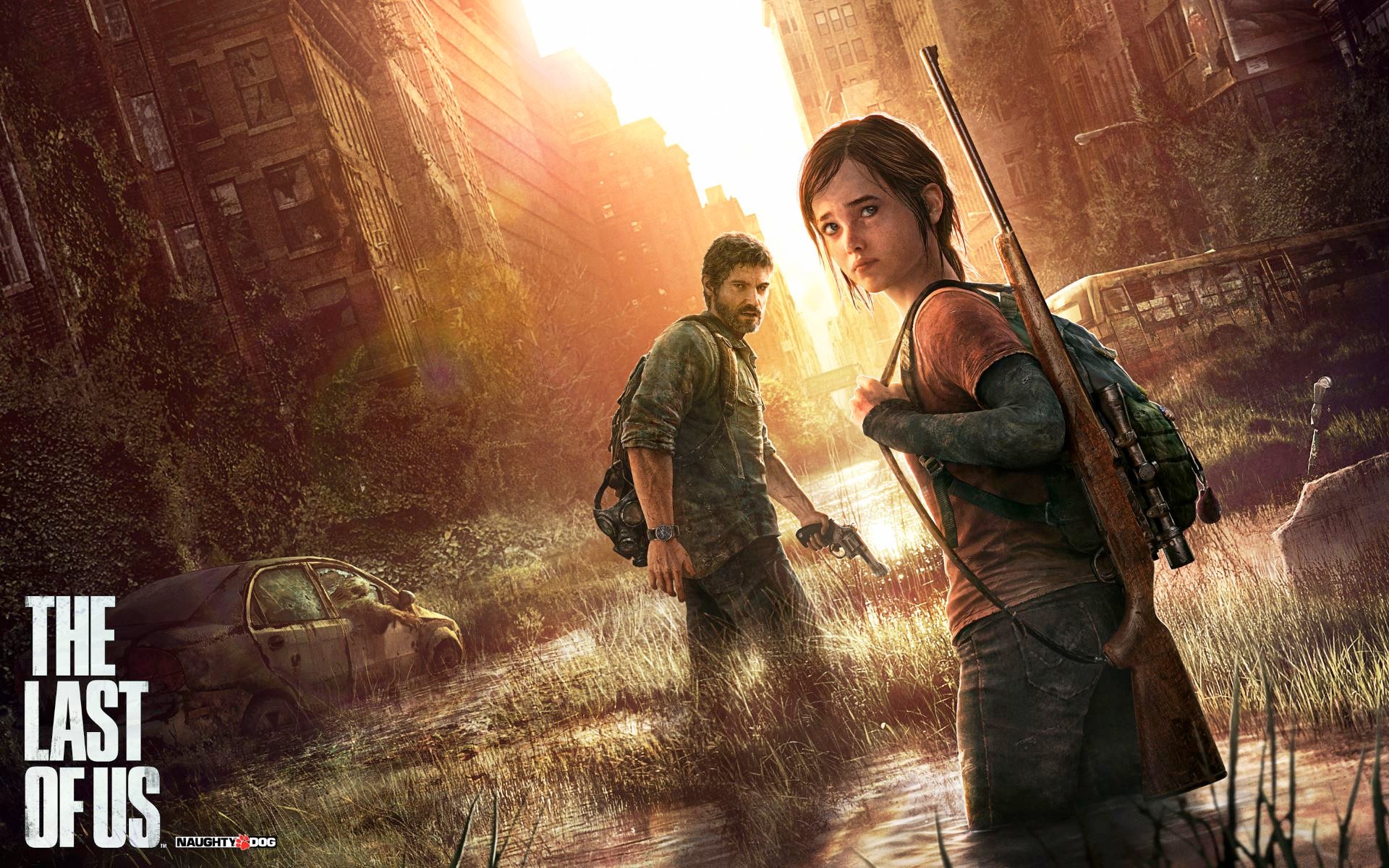
The Last of Us
You know, open-world games like we were talking about – I absolutely loved Red Dead Redemption. The feeling of the Western frontier and that sort of rhythmic galloping across the desert and seeing the vultures swirling in the distance… staying up all night just so you had a chance to find this stupid black horse and wandering up into the mountains to fight grizzly bears… it was all so good!
I thought the character was compelling too. I was literally shocked when he died – I didn’t see that coming at all, and that’s good writing. For every mission where you have to herd cows, there’s also a really high point in that game. I just wish they’d been a little bit more diligent in giving you some faction systems to get into. I kept thinking, “oh man, if they just had the faction system we had in Privateer, this game would be like three times as good!”. I think Fallout is amazing. I love all the Naughty Dog stuff – I think the Uncharted games are fantastic. And like I said, I’m a total Dark Souls nut – I’ve put over 1,000 hours, literally, into all those games on every platform. They’re just such good RPGs and there’s so many ways to replay them, and you just can’t stop that kind of stuff.
You mentioned Skyrim – did you think it was something special, or did you think it was OK?
Joel: I thought it was OK, yeah. I felt the same way about Oblivion. I liked the detail and the vastness of the worlds, and I enjoyed being able to go to whatever village and find it just as lively and detailed and full of stories and full of characters as any other village that’s out there. I think that the thing that doesn’t put it into the top 2 for me was the ‘blanderization’ of the world, where nothing felt particularly special.
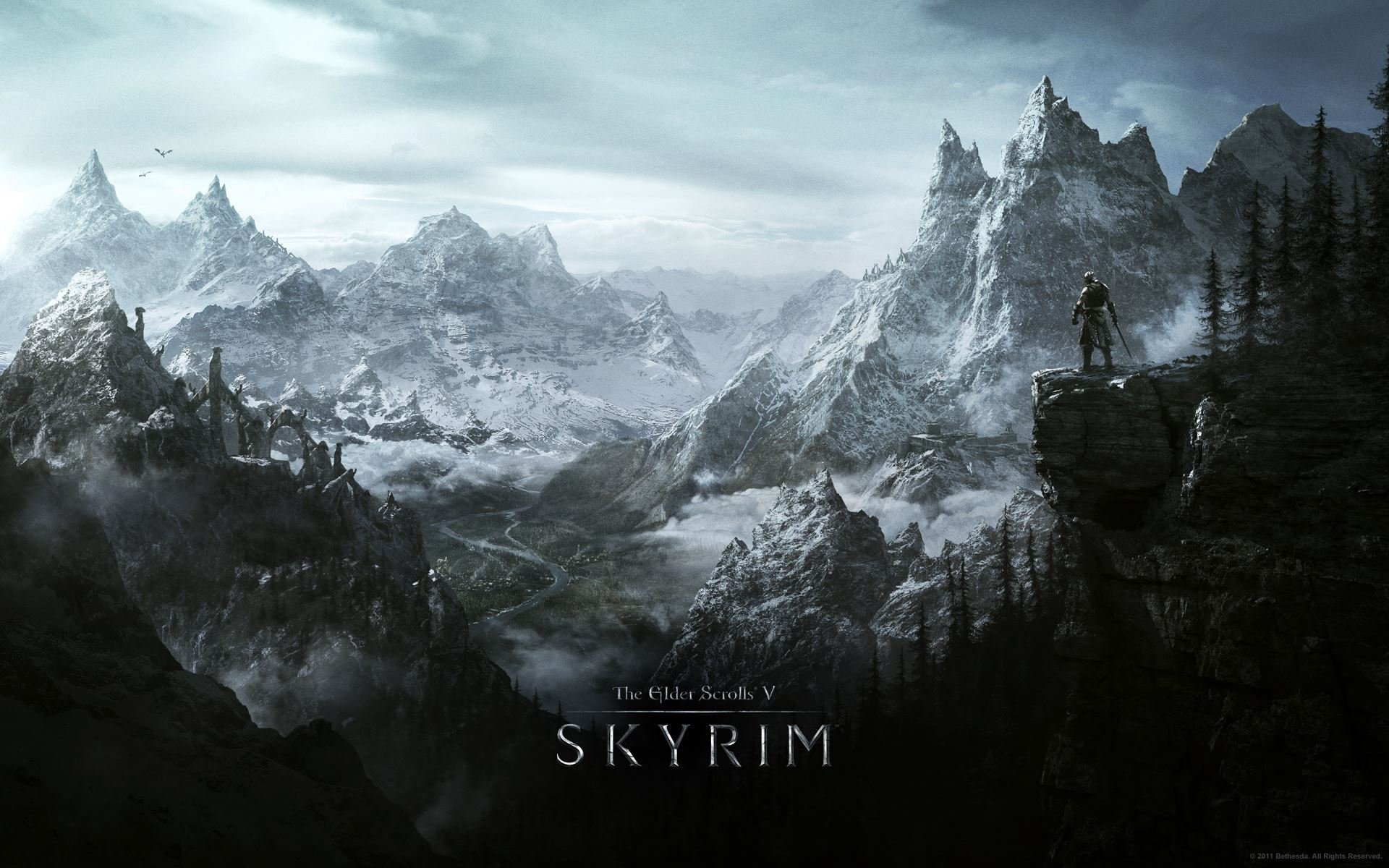
The Elder Scrolls V: Skyrim
My favorite example of that happened at the very beginning of Skyrim, where I became a werewolf – and then no one gives a shit. And I thought really?! I became a werewolf! That should change the entire game, and it doesn’t… and so I’m a werewolf who is also the head of the thieves guild, who is also the head of the assassin’s guild, who is also in charge of the rebellion, and no one cares except the three guys who are programmed to care. It felt like the world doesn’t grow with you. There’s some games out there that aren’t nearly as open – they’re not nearly as go-anywhere-do-anything – and I feel they’re a little bit more enjoyable. I’m thinking of Dragon Age, where they respond so much better to your character and where they are in terms of the plot.
In an upcoming interview, we discuss Joel's novel The Martyr's Blade - check back for the full details. Until then, you can read more about Joel Manners on his website at http://www.joelmanners.com.
Previous:
Interesting People #11: Tim Donley on Kickstarter - Part 2 of 2
Next:
Interesting People #13: Damon Slye on the making of Red Baron
